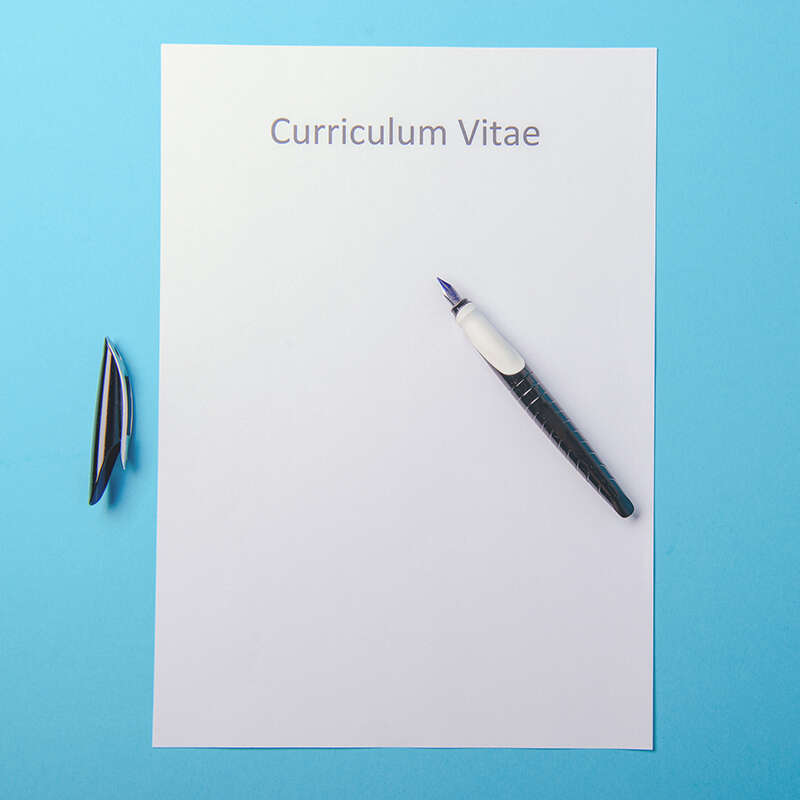Lisa Farmer shares her best 10 tips and advice for writing an impactful CV for interim managers.

Over the years in the interim industry, we have seen thousands of CVs varying from impressive to terrible. We are always asked ‘what makes a good CV?’ and also how can you condense sometimes decades of experience into a single document without it becoming a very long list?
The key is to keep in mind what a CV is used for. To state the obvious, it is a document that should give the reader a clear overview of your roles and key achievements within an organisation, over a period of time.
Here is some of the advice we share with interims about how to make sure their CV is the best it can be:
1. Start with a Profile Statement: A short profile statement at the beginning of your CV is key. A few lines which cover your area of expertise, sectors covered, whether you have worked internationally and any other key factors that set you apart. Be clear about your proposition as an interim business in this statement.
2. List Outcomes and Achievements: It is so important to make sure you think about what you have delivered in a role and give tangible evidence to back those achievements up, to articulate key outcomes and your part in that process. What was your brief going into a role and how did you enable change in that organisation?
3. Remember who the reader is: At the level interims operate at it is important to also remember who the reader is. It is likely to be a senior executive member of the board who is time-poor and will want to scan through the CV to ensure it meets their brief. Don’t assume the client knows who the organisations you have worked for are or their scale and size. Make it obvious. Use lists and bullet points to make the document easy to read and to navigate. Keep it simple, impactful and to the point. The best CVs are now more than 2-3 pages long.
4. Don’t go into detail about all your roles: Your most recent roles are the most relevant and likely to be the most senior roles. Clients are not as interested in what you did 15 years ago and although they should be documented, you don’t need to go in to as much detail about them. It is important they can see your work history in chronological order, but keep the details around the earlier years’ roles brief.
5. Your CV should reflect you: You will get different feedback from lots of consultants in the industry who will all have a different view on what they want to see from a CV. Take on board the feedback and use your own judgment to create a CV that reflects you and your experience. Make sure you include something about you and what you like to focus on outside of work as it sparks conversations with the consultant and the client.
6. Include Independent Work: If you are new to interim or have just left a permanent role and want to establish yourself as an interim, make sure you include any independent work you have undertaken as a consultant or on a freelance basis. This shows your ability to work independently and demonstrates your commitment to working outside of the world of permanent opportunities.
7. Contact Details: Another obvious one! We are always surprised when contact details are not included on a CV. Make sure you are clear about where you live (or have a base or bases) and whether you will work away from home.
8. Have your CV ready! It amazes us the amount of times we ask for a CV and the interim tells us they can get a CV to us that evening or the next day, even when they are not in a role. If you are immediately available and looking for a role have your CV ready to send. Send yourself a copy and keep it in a saved folder in your inbox so you can have your CV with the consultant in minutes. The world of interim moves quickly and so you need to be ready!
9. Formatting and Style: Most interim firms will reformat your CV so that the shortlisted candidates are presented in a uniform way. Keep the formatting on your CV clear and avoid boxes and tables or weird and wonderful fonts that may not be seen the same way when they arrive in someone’s inbox. Avoid links to websites included in your CV and we would rather you didn’t send us your CV via LinkedIn. It creates extra work for the consultant and may delay your details being shared amongst their colleagues quickly. Send a clear CV to their email address and date mark it so you know which version they have on file for you.
10. Qualifications: Make sure they are still relevant and reflective of the level you are operating at. Listing your O’ Levels or GCSE grades is not necessary! Make sure you are clear about what qualifications you have and keep a summary of them at the end of your CV.
Lastly, don’t forget LinkedIn! It is so powerful and will often work hand in hand with your CV. For a provider, it is a good indicator of availability and adds colour to your CV. A client will often check your Linkedin profile in addition so make sure it is up to date and clear. Make sure you connect with the providers you meet as it is a good way to make sure you remain on their radar.
Even the most experienced interims ask for feedback on their CV as they want to make sure it stays relevant and is in line with the client’s expectations. Do the same to make sure your CV continues to be a powerful representation of your skills and experience. Your CV will always be an evolving document that will often benefit from some tailoring for specific briefs.




